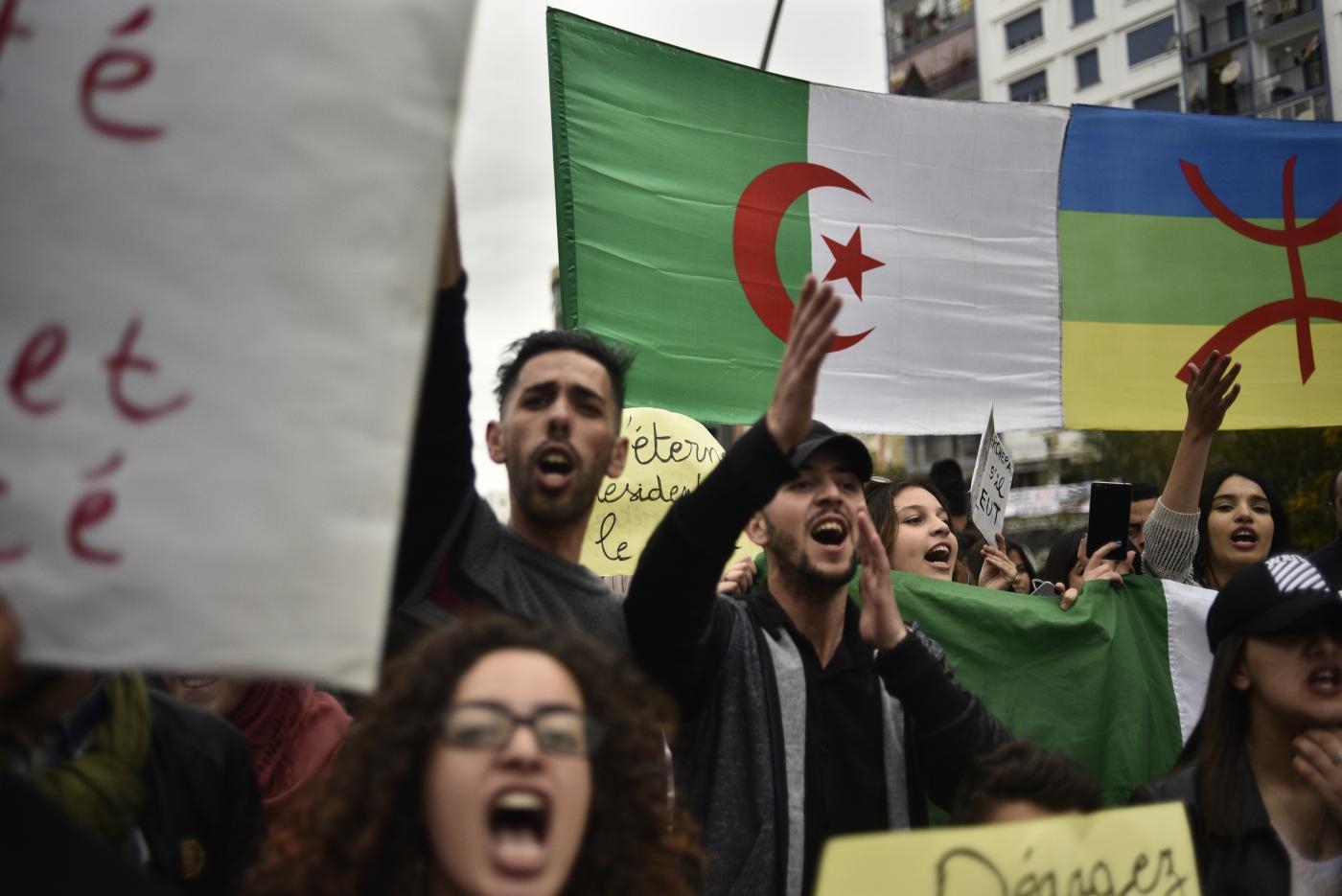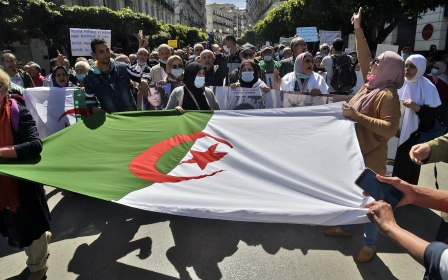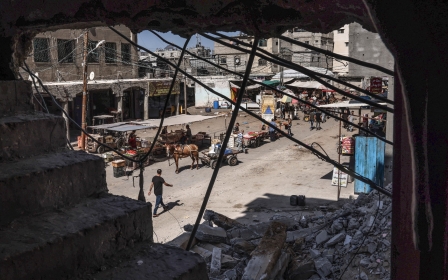Arabic press review: Amnesty calls for release of hunger-striking prisoners in Algeria

Algeria must 'release all peaceful activists'
Amnesty International has called on people to sign a petition demanding that Algerian President Abdelmadjid Tebboune release dozens of Hirak prisoners, who the rights group says have begun a hunger strike.
The pro-democracy Hirak movement began calling for radical political change in Algeria in February 2019.
In a tweet sent through its Arabic account on Wednesday, Amnesty said that as many as "40 detainees have started a collective hunger strike in protest against false accusations brought against them for exercising their freedom of expression".
The petition accused the Algerian authorities of "taking advantage of the Covid-19 pandemic to accelerate the pace of repression against Hirak activists, put its opponents in jail and silence the media".
"In response to concerns about the spread of the Covid-19 pandemic, activists suspended the Hirak peaceful protests," it said.
"Yet, the authorities did not suspend their prosecution of its activists."
The petition called on Algerian authorities to “stop the arbitrary prosecutions of Hirak activists, and to immediately and unconditionally release all peaceful activists.”
Algerian authorities did not comment on the petition. However, the country's public prosecution had issued a statement on Saturday saying that "the news circulated in the media that some of the detainees had started on hunger strike is incorrect".
US calls on Abbas to postpone Oslo Accords decision
Sources in the executive committee of the Palestine Liberation Organization (PLO) say the US administration has officially asked the Palestinian presidency not to take any decisions regarding peace agreements signed with Israel at its committee meeting this weekend, according to the London-based Al-Quds Al-Arabi newspaper.
The sources said the PLO will on Sunday discuss "taking fateful decisions that could lead to the declaration of a complete halt to the Oslo Accords".
The same sources said that Washington had asked the presidency to avoid making a similar decision during the visit of US national security adviser Jake Sullivan to Ramallah in December.
They said the request was renewed by US Secretary of State Antony Blinken during a phone call with Palestinian President Mahmoud Abbas on Monday.
The sources told Al-Quds Al-Arabi that the US administration has not provided any "real guarantees" that would force the Israeli government to follow the path of peace, implement the signed agreements and stop settlement activities.
This had prompted Abbas to change his political plan, which gives the international community one year to end the Israeli occupation, before moving on to measures that include the "dissolution" of the signed agreements, they said.
In his call with Abbas, Blinken tried to avoid a "stalemate" in the political situation, expressing his administration's objection to any new PLO decision that would include the "dissolution of the Oslo agreement," according to the newspaper.
Lebanese pound lost 80 percent of value in two years
A new report published by the UN Economic and Social Commission for Western Asia has shown that Lebanon has recorded the highest inflation in the Arab world, while its currency lost 82 percent of its value between 2019 and 2021, according to the London-based newspaper the New Arab.
The report, Released New Results of Purchasing Power Parities in the Arab Region: The Real Size of Economies, found that Lebanese households required five and a half times the amount of Lebanese pounds they used to pay in 2019 to get the same equivalence in dollars.
It estimated that the local currencies in Sudan and Lebanon had lost about 87 percent and 82 percent, respectively, of their purchasing power against the dollar between 2019 and 2021.
The report presented the results of Purchasing Power Parities (PPPs) and Price Level Indices (PLIs) for the year 2020, and estimates for the year 2021, for 13 Arab countries, including Bahrain, Egypt, Iraq, Jordan, Kuwait, Morocco, Oman, Palestine, Qatar and Saudi Arabia.
It found that when comparing the PLIs of the 13 countries with those of the United States in 2021, most countries had experienced a decrease in the level of inflation when compared with the US.
*Arabic press review is a digest of news reports not independently verified as accurate by Middle East Eye
Middle East Eye delivers independent and unrivalled coverage and analysis of the Middle East, North Africa and beyond. To learn more about republishing this content and the associated fees, please fill out this form. More about MEE can be found here.






